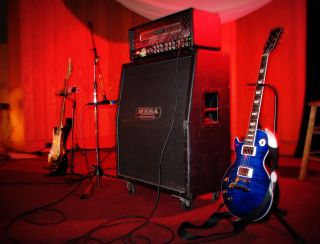Relationships
The Problem with No Problems: The Rock Band Case
For rock bands and other teams setback can be more important than successes
Posted May 30, 2013
Wouldn’t it be great if the path to success was bump-free? A smooth ride sounds good, but it can lead to missing out on the important benefits of failures for a team.

Worth the effort?
Take rock bands, which often spend their early years playing practically for free to largely indifferent audiences. Each gig is a failure of sorts. The band rarely makes enough money to make it worth their time. Plus, band members pay the opportunity costs of giving up standard jobs so that they are free to travel or stay up all night. Living and traveling conditions are rough and the lifestyle isn’t healthy.
As a result, some rock bands have opted to avoid the costs and hassles of touring by recording and releasing music and YouTube videos. With live streaming websites like iRocke, bands can stream a small club show worldwide. The Gregory Brothers built a huge following and charted singles by posting auto-tuned news clips on YouTube. Why sleep in the van and subsist on peanut butter and jelly sandwiches when you can pick up a following without leaving home?
Traditionally the answer had been that touring is the best way to hone a band’s performing chops and build an audience for its music. Often overlooked are the team-building benefits of early tours.
When The Flaming Lips’ singer Wayne Coyne and bassist Michael Ivins drove to one of their first college radio interviews, they got into a car accident. They missed the interview, but the accident proved to be a key event in cementing their bond. “It was like, ‘If it didn’t kill us, then we’re going to keep going,’” Ivins later reflected.
A recent study in Administrative Science Quarterly illuminates why tough times early on can be so beneficial to teams. It analyzed research collaborations by Stanford University’s faculty over the course of 15 years and found that the deeper and more multifaceted the relationship between collaborators, the more likely they are to keep working together. A surprising finding was that success, as measured by how often the work was cited by others, did not have the same effect.
Why would people keep working together even when the results don’t justify it? “Because,” the authors of the study write, “people tend to stick to the ties they have formed, for better or worse, especially stronger ties that are multiplex and span multiple types of associations.” That’s why crisscrossing the country gigging may be a better way to develop a band for the long haul than creating YouTube videos at home. It gives the band members the opportunity to strengthen their bonds. They party, they play, they laugh, and they have fun. They learn about different aspects of each other’s personalities. They get to know each other’s sense of humor. You get to know each other’s quirks.
With new collaborator there is always a risk. Will you get on? Will they go “all in” with you? But once you’ve been through tough times together, your doubts can be set aside.

Green Day
This is why music industry veterans, such as Green Day manager Pat Magnarella, say it’s important for bands to get out there in the van and play shows. Green Day spent their early years driving in a station wagon and playing whatever venue would have them. In November 1990, they got themselves to Europe on their own and performed 64 shows in European pubs and squats, picking up head lice along the way. These early experiences were not just about getting better and building a following. They were also about strengthening the team. That investment paid off. Billie Joe Armstrong’s recent onstage meltdown hurt the band’s public image and tested their relationships, but the band recovered and is gearing up to headline Britain’s Reading and Leads festivals.
Difficult experiences are particularly powerful sources of commitment when the team is starting out because they cannot be justified in terms of the money or fame gained by the work, since there was none. Rather, early setback becomes an opportunity to build cohesion and develop pride in the team’s resolve, dedication, and commitment.
Today, Green Day and The Flaming Lips are still going strong because they have worked at staying a team when times were no longer tough, maintaining their strong relationships decades after their initial success.
For more about the social science behind the music, follow me on Twitter and Facebook.


